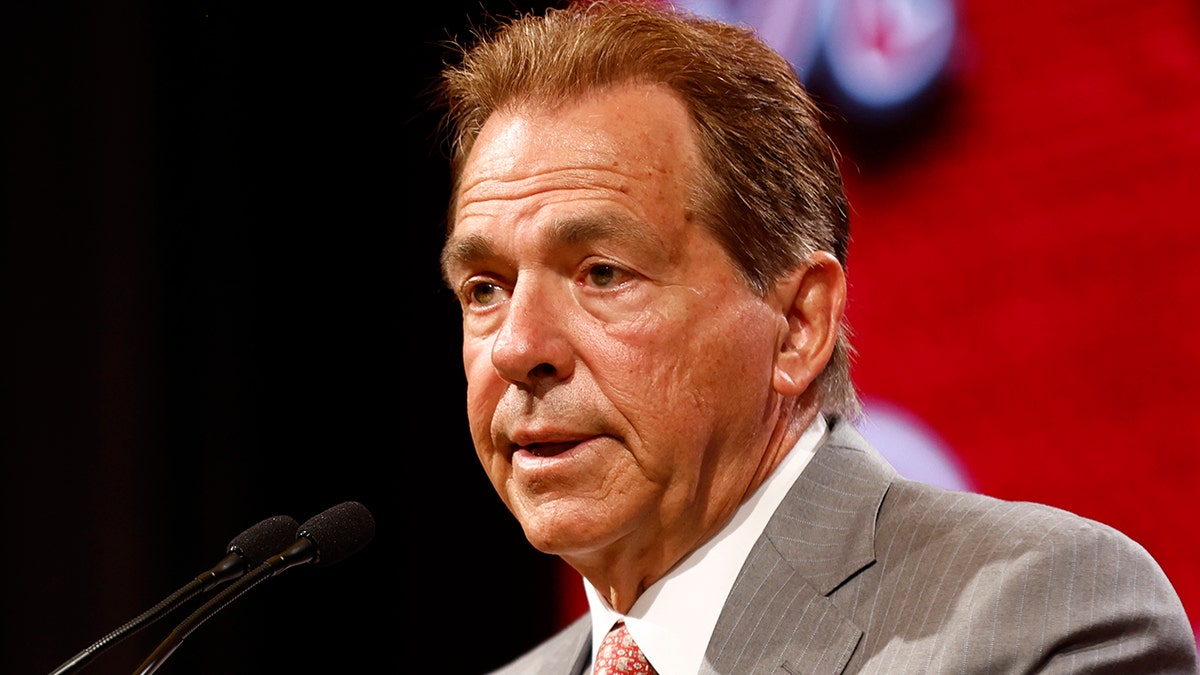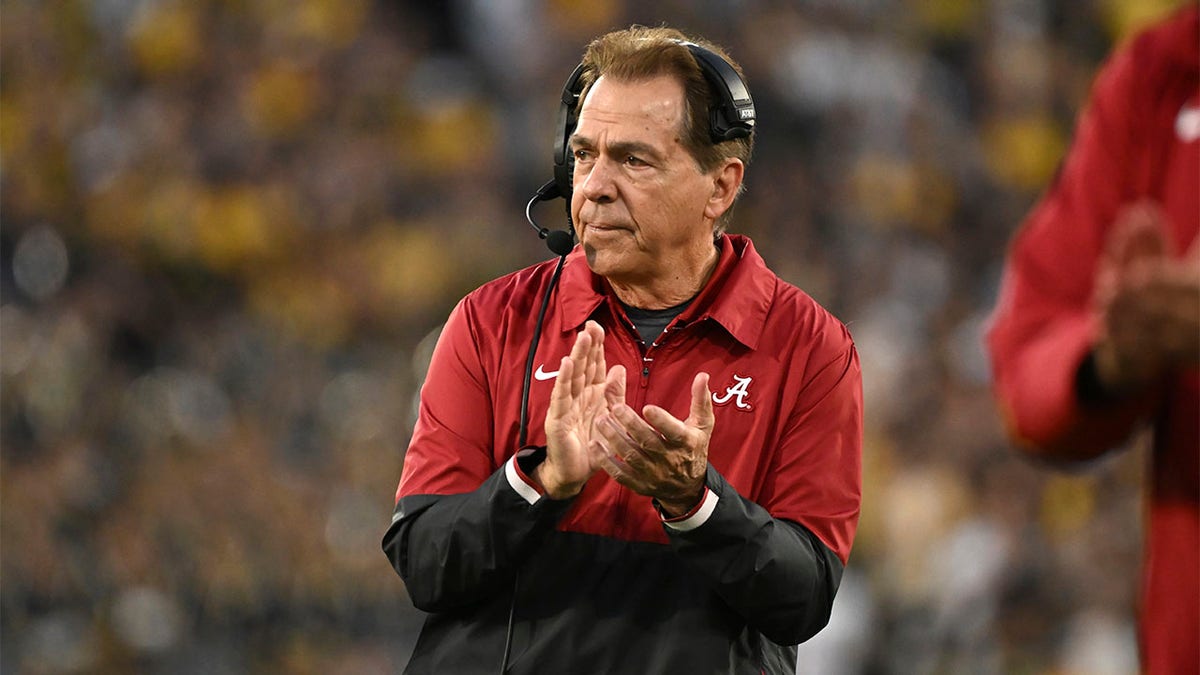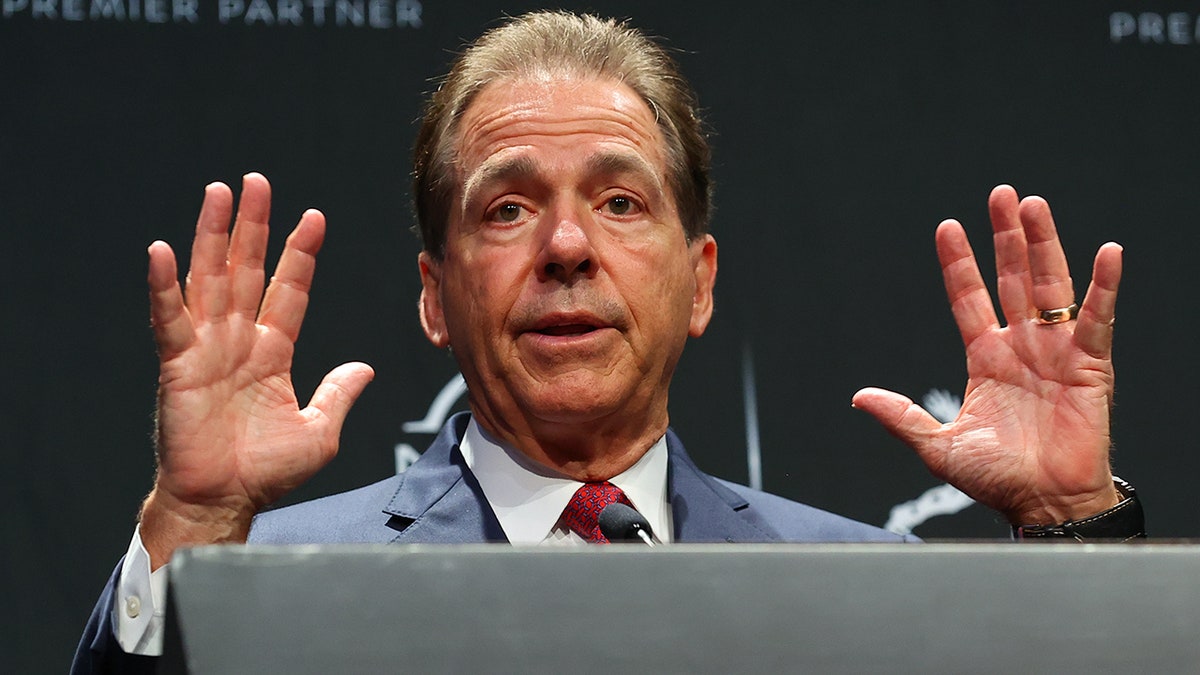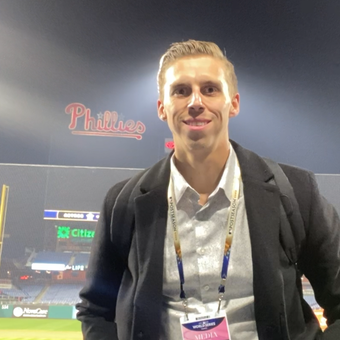Nick Saban foresees 'serious problems' with NIL system
Seven-time national champion coach Nick Saban discusses the implications of student-athlete compensation and how name, image and likeness deals could affect the future of college sports on ‘Special Report.’
Earlier this week in a courtroom, former Alabama head coach Nick Saban reiterated his stance on NIL and how it has had a negative impact on college athletics.
"What we have now is not college football," the seven-time national champion said last month.
After five decades on football sidelines, it's all changed, he says.
"All the things I believed in for all these 50 years of coaching no longer exists in college athletics," Saban said in court Tuesday.
CLICK HERE FOR MORE SPORTS COVERAGE ON FOXNEWS.COM

Head Coach Nick Saban of the Alabama Crimson Tide speaks during 2023 SEC Media Days at the Grand Hyatt Nashville July 19, 2023, in Nashville. (Johnnie Izquierdo/Getty Images)
Saban reiterated with Bret Baier Thursday night that NIL isn't the reason he retired.
"I didn't want my age to be a detriment to the University of Alabama, to the football program and the chances of it being successful," he said.
However, he has been adamant about making changes to NIL.
Last year, Saban was part of an SEC contingent that went to Capitol Hill to discuss NIL, which he says needs regulation.
Saban says he'd like to see the "collective-driven" system replaced with a "revenue-sharing" operation.
"Football and basketball are going to be fine because they're revenue-producing, but all the non-revenue sports have always been funded by the revenue sports," Saban told Baier. "We want to continue to be able to do that, so we have to come up with a system that allows us to do that, and people giving all this money to collectives can give it back to the athletic department or the university in some way that would be beneficial to creating opportunities for student-athletes and helping them be successful.
"A guy like [former Bama quarterback] Bryce Young, who had several national commercials, they didn't come from a collective. They were because he created a brand for himself, which is what name, image and likeness was supposed to be.
"And I think that should still exist for all players, but not just a pay-for-play system like we have now where whoever raises the most money in their collective can pay the most for the players, which is not a level playing field. I think in any competitive venue, you want to have some guidelines that gives everyone an equal opportunity to have a chance to be successful."

Alabama head coach Nick Saban reacts after a touchdown during the second half of the Rose Bowl CFP NCAA semifinal game against Michigan Jan. 1, 2024, in Pasadena, Calif. (AP Photo/Kyusung Gong, File)
Saban said the NCAA "can handle" NIL and whatever changes are necessary, but Congress "needs to" add "national legislation."
"Now, we just have the state legislation — and every state is different — that would protect the NCAA from litigation once we establish guidelines for the future of college athletics. But the litigation is what got us to this point right now," he said. "We have to have some protection from litigation. I don't know if it's antitrust laws or whatever.
"I'm not versed enough on all that to really make a recommendation. But I know we need some kind of federal standard and guidelines that allows people to enforce their own rules.
"You go to college to create value for your future, and I want the quality of life for student-athletes to be the best it can be. And I think they should have a seat at the table. And I think they should share some of the revenue. But I think it needs to be equal across the board so that a school that can afford more can't create an advantage for themselves just because they have more money to spend. But I'm all for student-athletes. I want student-athletes to have the best quality of life."
Saban also touched on the latest move for pay-for-play by the Dartmouth men's basketball players after they voted to unionize in an attempt to become school employees.
While Saban says he is "not anti-union by any stretch of the imagination," he did address a negative aspect of unionizing.

Alabama head coach Nick Saban answers questions from the media at the Heisman Trophy press conference at the Marriott Marquis in New York Dec. 11, 2021, in New York City. (Rich Graessle/Icon Sportswire via Getty Images)
"I think you make college athletes employees, there are some disadvantages to that. They can be taxed on a lot more things, on the benefits they get right now," he said. "We pay approximately $93,000 per student-athlete when you take in all the support that they get — whether that's academic support, food, all the things that go into their scholarship. If they have to pay tax on some of those benefits, that's not going to be very beneficial to them, and I don't think that's something that we want.
"But you can't have revenue sharing in college athletics without making college athletes employees, and that's why I'm so in favor of taking this route. If you're a music student, and you create a new song, and you do it in class, the university has the legal right to patent, but you can collect money for that without being an employee.
"What's the difference for a student-athlete who plays a sport? I just want to replace the collective NIL model with a revenue-sharing NIL model because the sports do create revenue. Everybody can still have name, image and likeness opportunities, which is a good thing for student-athletes."

Head coach Nick Saban of the Alabama Crimson Tide during the second quarter against the Arkansas Razorbacks at Bryant-Denny Stadium Oct. 14, 2023, in Tuscaloosa, Ala. (Alex Slitz/Getty Images)
CLICK HERE TO GET THE FOX NEWS APP
Saban shied away from saying he's interested in becoming a commissioner for college sports if such a position opened up, but he is "interested in trying to help college athletes and college athletics be successful in the future" and "continue to create opportunities for multiple sports that are non-revenue sports."
"I think that's important that we continue to create those kind of opportunities. I'm very committed to that, so how I could do that best, I'm not sure of," he said. "But I'm certainly committed to trying."
Follow Fox News Digital’s sports coverage on X, and subscribe to the Fox News Sports Huddle newsletter.











































